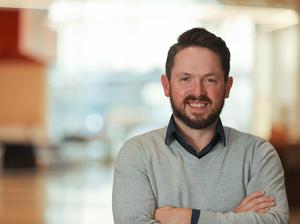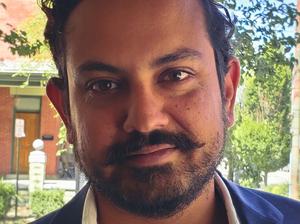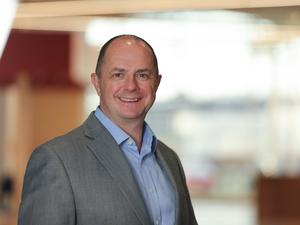
Columbus-based Zell Capital has converted to a traditional privately held VC, according to SEC filings. While existing retail investors can stay, they can't buy more shares, and future investors must be SEC-accredited.
A 1940 federal law made it possible to create a venture capital fund open to everyday investors, but regulations under securities laws made the fund impractical to operate in a digital age.
“We were able to preserve the fund, and got a great portfolio of companies we’re going to add to," founder and CEO Will Zell told Columbus Inno. “We want to build a great investment company."
While the "access fund" model opening private markets to the non-wealthy is shelved, Zell said, the second mission – to back early startups – is going strong, with “a ton of passion” from remaining backers.
"The journey and joy of startup investing isn’t just the capital and prospective return; it’s that I’m helping entrepreneurs pursuing a dream and helping them in a meaningful way make progress," Zell said.
The Columbus-based fund invested in five startups through September, according to its final annual report. Among them are Columbus-based Dolr, which employers use to help workers pay down student loans. Two are based in Columbus but in stealth mode.
There were fewer than 100 investors, according to regulatory filings.
Why Zell wanted to create an 'access fund'
Private equity investments in companies “certainly” carry risks, and regulators should protect investors, Zell said. But that investment class also creates a great amount of wealth – and only those who are already wealthy are able to participate. The SEC estimates 13.5% of U.S. households qualify as "accredited."
“It’s a massive societal problem,” he said.
The serial entrepreneur spent several years trying to solve the problem, finding a vehicle actually created in the Investment Company Act of 1940. Zell Capital debuted in June 2021, registered as a "closed-end management investment company," as opposed to open-ended ones like a mutual fund.
The minimum initial investment was $1,000.
"With every fiber of my being, I believe private markets should be available to all investors," Zell said at the launch.
In that first year, the fund sold $714,000 worth of $20 shares – just a fraction of the $18 million target to become sustainable. Over four to five years the fund aimed to raise $50 million.
Expenses ran into hundreds of thousands, about $350,000 for the six months ended in September alone. A Zell-owned affiliate reimbursed about half.
The vast majority of expenses were professional services and fees required to comply with being publicly registered, Zell said. Going private reduces expenses at least eightfold.
Marketing to grow the membership, meanwhile, was a slog. Even a two-paragraph LinkedIn post promoting the fund took three or four days for regulators to approve. If someone asked a question in the comments, the response too needed approval.
In digital etiquette, waiting five days to reply looks terrible.
"It's like being stuck in tar," Zell said. "We had lost all momentum."
Then came 2022, when investments in tech sputtered nationwide. And as interest rates started climbing the second half of the year, an illiquid, high-risk investment looked even less attractive.
Zell himself held 7.5% of the fund; other trustees did not have appreciable holdings, according to filings. Gravity Investments, owned by Columbus developer Brett Kaufman, owned 21%.
Sales of new shares to the public were suspended in July. The board approved the private conversion in August, according to filings.
Shareholders approved the change in January, triggering the offer to buy back the shares. The U.S. Securities and Exchange Commission declared the deregistration on May 12.
In all, about 30% of investors owning 13% of shares sold them back at the $20 purchase price by the mid-February due date, just under $92,000, according to Zell and regulatory filings.
Seven out of 10 stayed with the fund, he said.
What's next for Zell Capital
The new structure has several advantages, he said, especially the ability to communicate freely with investors without getting clearance for every sentence.
Investors have sent leads for new investments and helped startups by introducing prospective customers and giving feedback on products.
“They’ve been awesome and receptive,” he said. “Now we can build much more direct relationships.”
Going forward, the minimum investment to join the fund rose to $100,000 from $1,000.
Zell has new but less numerous rules as manager of a private fund – he can’t talk about any ongoing fundraising.
Eventually he wants to lobby for substantive rule changes at the SEC and the Financial Industry Regulatory Authority, but first is focused on getting the fund on a sustainable path.
"When you’re looking at the fundamental rule changes, it takes time," Zell said. "It’s a multiyear process.
"We do need to build up the fund, but we have our eye on a couple of (new startup) investments."
As the first investor in a startup, the fund will have the “pro rata” right to preserve its percentage ownership in future rounds: For example, if a higher valuation dilutes a 20% stake to 15%, the original investor needs to invest 5% at the new value to stay at 20%.
This isn't the first time Zell has had to take a hard turn on a startup strategy.
He spun Nikola Labs out of Ohio State University eight years ago – but federal regulations stymied commercializing the wireless power tech it licensed.
But the process led to a different product, wireless sensors to prevent costly downtime in manufacturing by alerting the need for maintenance. Renamed AssetWatch, the Westerville company is rapidly adding customers who report saving $8 for every dollar they spend on the system.
Last year Zell left operations at AssetWatch to focus on the fund but remains executive chairman.
"I need to stop going into highly regulated environments," he said with a laugh. "It was a path and journey to do something innovative and be one of the first.
"The initial effort didn’t work out, (but) we’re building one of the fastest-growing companies in the entire Midwest."
That's the future he wants for Zell Capital.








